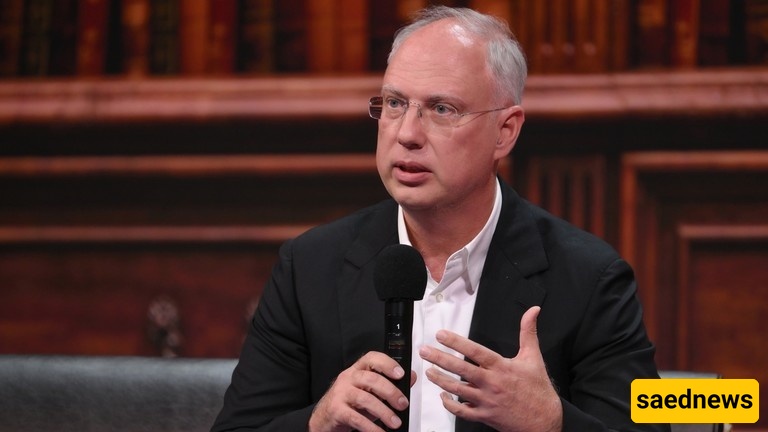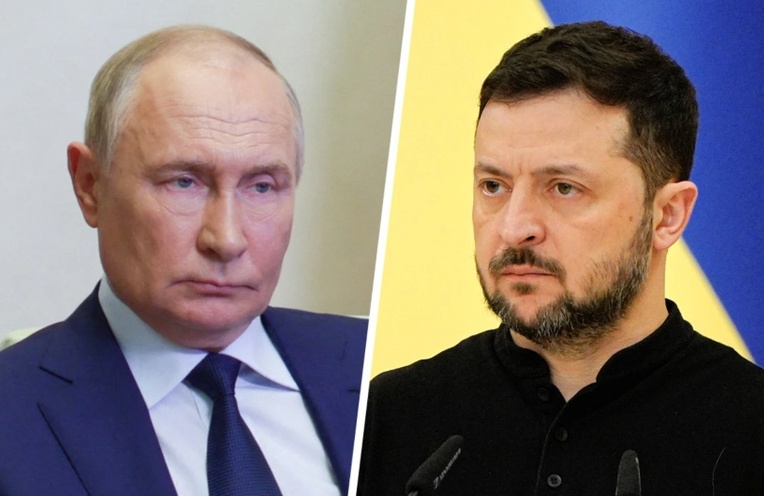SAEDNEWS: A senior Russian negotiator has warned of a real possibility of deliberate sabotage at the upcoming meeting between Vladimir Putin and Donald Trump—an alert that shows Moscow regards this encounter not only as an important event but also as a potential target for opposing forces.

According to Saed News, quoting Russia Today, as the world of politics eagerly watches the forthcoming meeting between Vladimir Putin, President of Russia, and Donald Trump, former President of the United States, a senior Russian negotiator has spoken of a genuine risk of sabotage at this event. These remarks, made in an interview with Russian domestic media, have sparked widespread reaction in political and media circles, highlighting the sensitive and fragile nature of this summit.

The Russian official stated, “There are parties both inside and outside the international political arena who do not benefit from the successful holding of such a meeting and may try to disrupt the process by various means.” Without naming any specific country or group, he referred to “a network of opponents” whom he believes could use political, media, or even field actions to influence the outcome of the negotiations.
This warning comes amid an unprecedented level of distrust and geopolitical competition in international relations. The war in Ukraine, the energy crisis, security disputes in Europe and Asia, and economic pressures from sanctions have all combined to ensure that any dialogue between leaders of major powers is followed with heightened sensitivity. The Putin–Trump meeting, given the history of their turbulent relations, has from the outset been seen as a controversial event with potentially significant impact on global dynamics.
From Moscow’s perspective, the meeting could be an opportunity to break part of the diplomatic isolation and present Russia’s narrative to a highly influential American political figure. Conversely, many critics in the West and even within the United States believe such talks may legitimize Kremlin policies. This clash of interests creates fertile ground for sabotage scenarios, ranging from leaks of classified information to provocations of security incidents on the eve of the summit.
Past experience shows that high-level meetings between global powers have frequently encountered unexpected incidents or coordinated opposition actions. Examples include media leaks, cyberattacks, or even provocative military maneuvers in sensitive regions prior to similar meetings. For this reason, the Russian official warned that security agencies of both countries must be extremely vigilant and maximize protective and counterintelligence measures.
However, Western analysts take a cautious approach to the Russian official’s remarks. Some believe that making such claims may be part of a diplomatic strategy to shift responsibility onto “sabotage forces” in case of failure or breakdown in talks. This tactic has previously appeared in Russian foreign policy, where warnings about “hidden hands” have served to strengthen internal cohesion and justify official positions.
On the other hand, supporters of the meeting argue that while the risk of sabotage is real, it should not prevent dialogue. They emphasize that diplomacy during crises is more necessary than ever, and only through negotiation can pathways to de-escalation be found.
Within the U.S., reactions to the sabotage warning have been mixed. Some figures close to Trump see this caution as further reason to keep meeting details confidential, while his critics warn that Trump may enable Moscow’s exploitation by conceding one-sided advantages. This politically charged atmosphere itself may favor disruptive scenarios.
From a security standpoint, experts believe the range of threats could include cyber operations targeting communication systems, intelligence operations to alter negotiation content, or attempts to provoke security incidents at the venue. Third countries that stand to lose from a potential Russia-U.S. rapprochement may also indirectly participate in such sabotage efforts.
Ultimately, regardless of the possible motivations behind the Russian official’s warning, the reality is that the Putin–Trump meeting takes place amid one of the tensest periods in international relations. The presence of staunch opponents to any rapprochement between the two countries—politically and security-wise—is undeniable. Whether these oppositions will translate into concrete actions to disrupt the meeting remains a question that will only be answered in the days leading up to and possibly after the summit.
In any case, Moscow’s warning can be seen both as a security alarm and a political message—a reminder to all parties involved that this meeting is not just a bilateral encounter but a potential turning point in the global balance of power—which makes it an attractive target for opponents and saboteurs alike.

